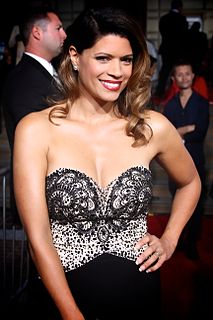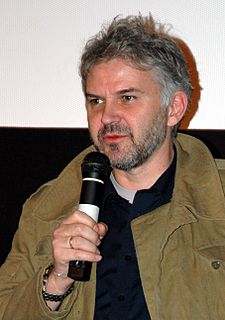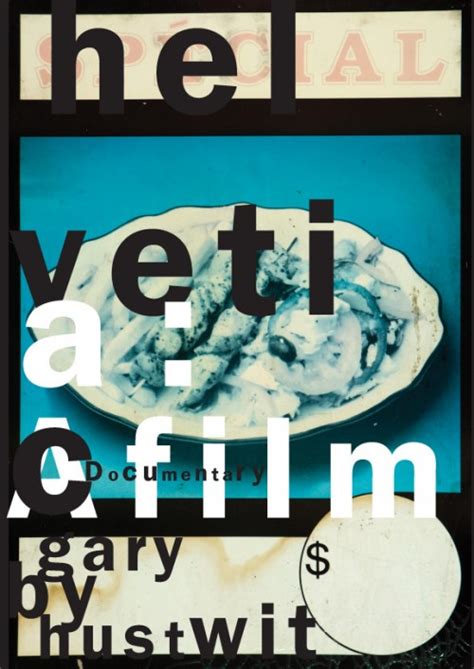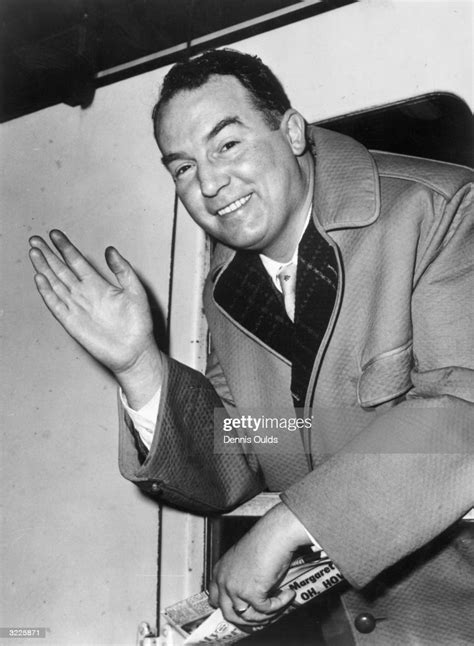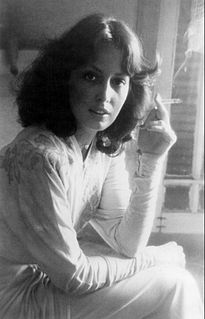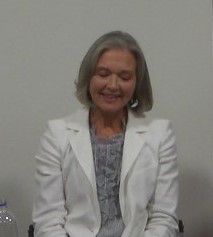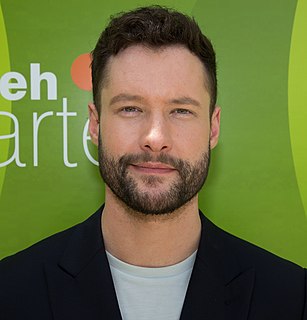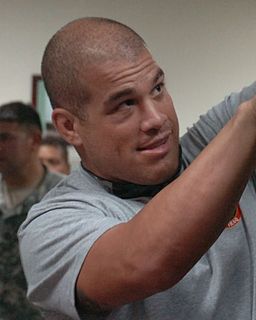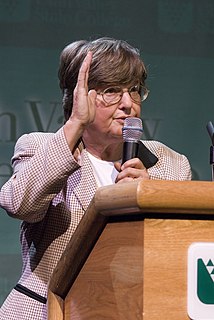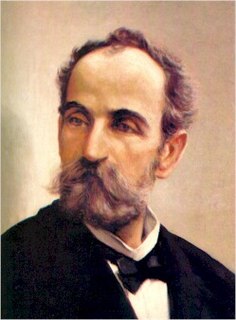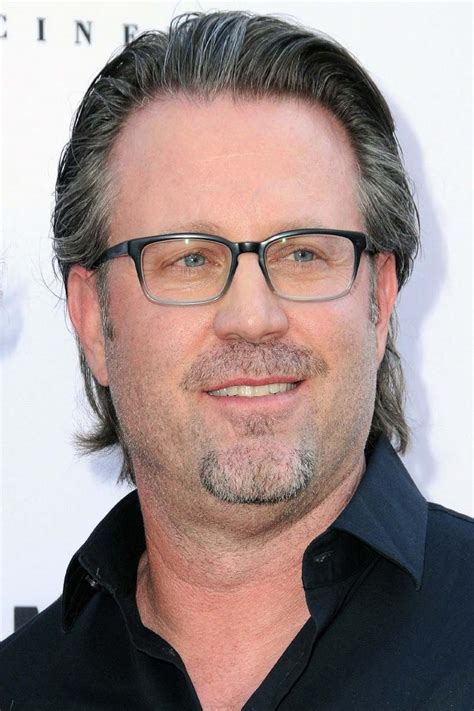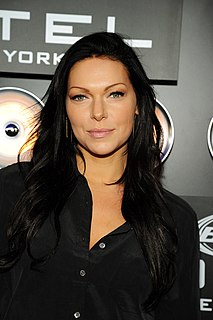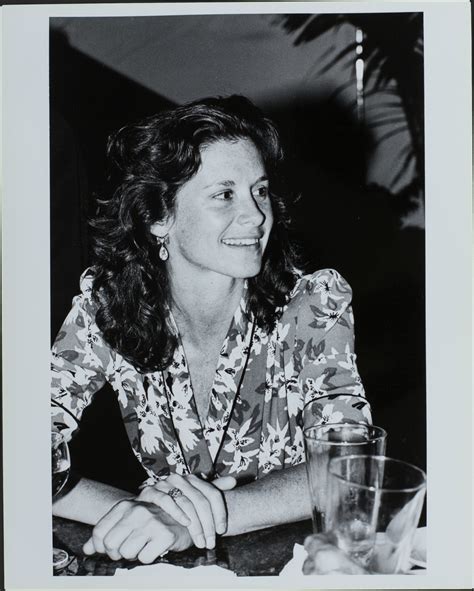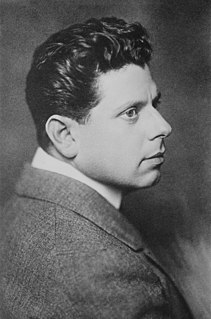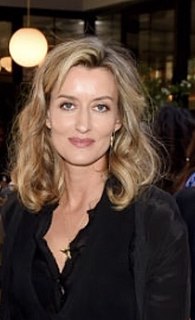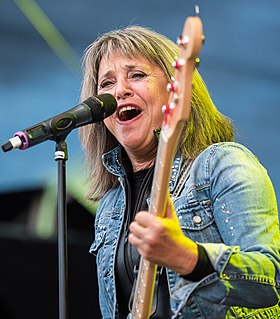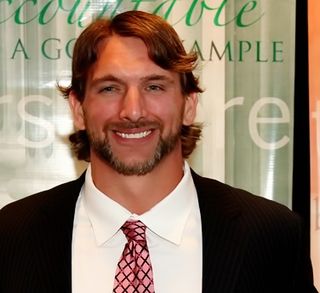Top 667 Upbringing Quotes & Sayings - Page 11
Explore popular Upbringing quotes.
Last updated on December 23, 2024.
I grew up on welfare in the South Bronx; I had a very tough upbringing in that neighborhood. Reading books like The Four Agreements, A Return to Love, and The Power of Now helped me to overcome many internal battles. Had I not worked on myself, put value in myself, I would not have the loving and supportive people that I have right now in my life, including my husband and children
I play guitar, the ukulele and the piano. I grew up on a mountain in Tennessee and we had The Mountain Opry, where anyone could just get up on stage to perform. It was just about the soul and heart of music. My upbringing was less about being great and more about just doing what you love. It was always for joy.
I think great businessmen are more likely made than born. I don't know if it's from your upbringing, your parental background, the struggles you go through. In my own particular situation, I left school at 15 and I was struggling to survive in the jungle and that was a great education. So I think just getting out there, hands on, learning to survive teaches you a lot.
The intellectual is not defined by professional group and type of occupation. Nor are good upbringing and a good family enough in themselves to produce an intellectual. An intellectual is a person whose interest in and preoccupation with the spiritual side of life are insistent and constant and not forced by external circumstances, even flying in the face of them. An intellectual is a person whose thought is nonimitative.
Ours was a very progressive Protestant family, but my parents were God-loving rather than God-fearing. We went to church, and I still go with my mum and dad when I return home - it's a family thing. I played flute in my dad's marching band, but I had an integrated upbringing. We had a lot of Catholic friends.
I think I got into acting because I kind of had not much else to do! I guess I was kind of looking for something challenging. I heard about the London Theater scene and it was very different from the upbringing that I had and it felt like a challenge. And the whole sort of London Theater schools, I was told that 6,000 apply and there are like 30 accepted to each one. I was like, "Yeah. Let's see if we can do that!"
On one hand, prostitutes don't struggle because it's simply their life. In Mexico and elsewhere, once they get out of these places [brothels] they have a pretty square life. In Bangladesh it's different because they live in the brothel, it's sort of a prison, but still there are two sides. When they think of their religion and their upbringing, they can be very moralistic. They're moralistic about giving blow jobs. On the other hand, they have an everyday life where there's no room for shame.
I grew up with this crazy upbringing of living many places and always being the new kid in town, not like a service brat where you're always going to school with other new kids in town. I was constantly arriving in small towns and going to school with kids who'd been together since they were in kindergarten.
What parents and teachers and caregivers did with me that actually worked and a lot of that was the old fashion 50s upbringing. They just gave the instruction when I did something wrong - life was more structured. So basically it's [my work] based on experiences with me that worked and it was teachers and parents that made me have those experiences.
You don't know the things in your childhood that influence you. You can't possibly know them. People today try to analyze the early environment and the reasons for something that happened, but if you look at children of the same family -- children who have identical parents, go to identical schools, have an almost identical upbringing, and yet who have totally different experiences and neuroses -- you realize that what influences the children is not so much the obvious externals as their emotional experiences. Of course any psychiatrist knows that.
I'm very much inspired by the Latin music, especially the romantic boleros. Not that when I sit to write a play I listen to boleros. But I think it's part of my DNA, it's part of my upbringing. I grew up in a house where this is the kind of music my parents used to listen to. This is the kind of music I would even hear in my neighborhood. I think that sort of romanticism is part of the culture.
When I was sixteen, I began to think outside the box of my small town. Not that the people in my small town are in a box - they're not! There's a brilliant college there, and I had brilliant teachers from that college. But in terms of a conservative upbringing, which I did have within my own family, I just began to question things and to think for myself.
The world men inhabit is rather bleak. It is a world full of doubt and confusion, where vulnerability must be hidden, not shared; where competition, not co-operation, is the order of the day; where men sacrifice the possibility of knowing their own children and sharing in their upbringing, for the sake of a job they may have chosen by chance, which may not suit them and which in many cases dominates their lives to the exclusion of much else.
It's really the story of a young woman, or two women, growing up in Naples in a poor neighborhood. The way that they get out of it - or don't get out of it - that's part of it. But it's also the story of the mid-20th century in Italy so it's really like a social, historical and personal novel. I think that even though I didn't live in Italy in those years, it did cover that same type of generational upbringing that someone like me might've had in America.
My upbringing has been pushing and pulling my work my whole life. At first it pushed me away, as I sought to clean up my mind with a style that was slick and glossy, aspirational and wrapped in fantasy. That's still largely how I approach my fashion work. More recently it's pulled me back, particularly since Katrina, and as I get older and lose some of that shame that's inherited with poverty.
Sticks and stones may break my bones, but words can never hurt me." The adage is true as long as you don't really believe the words. But if your whole upbringing, and everything you have ever been told by parents, teachers and priests, has led you to believe, really believe, utterly and completely, that sinners burn in hell (or some other obnoxious article of doctrine such as that a woman is the property of her husband), it is entirely plausible that words could have a more long-lasting and damaging effect than deeds.
I think the ultimate challenge is to have some kind of style and grace, even though you haven't got money, or standing in society, or formal education. I had a very middle, lower-middle class sort of upbringing, but I identify with people who've had, at some point in their lives to struggle to survive. It adds another color to your character.
If I wasn't acting, I would own a farm. Not like growing crops but maybe have a few animals like cows, and maybe an alpaca or a llama. I would chop wood all day. I would make a living doing that; it's, like, an idealistic scenario for me. It's very contrary to my upbringing, but maybe that's the appeal to it.
Growing up the way I did, it was tough being one of only a few black people in the town and in school. What my upbringing got me is never feeling completely safe emotionally. Never knowing when something racial was going to pop off based on how I look. So that's something I've carried with me personally and is reflected in my work.
My upbringing was faith-based, but we believed you should love all others as you want to be loved, because everyone should be treated equally. That's helped me have an understanding of people on different journeys and in different walks of life. At the end of the day, we're all the same, because we all want to be loved.
My true inspiration is to give everything to my kids that I never had. I had a really rough upbringing, and I want to break that chain. I've broken the chain, and I want to give my kids happiness every single day. When they wake up and hop on me and say; 'Dad I love you,' that is what means the most to me.
I had a good, sound upbringing with sensible people around me. I was brought up by intelligent parents. My mother always said to me, "You've got to work at your career and you've got to be good at it. Okay, you've had a bit of success but that's not longevity. You've got to really work for a long time."
I keep thinking of the gifts of my own upbringing, which I once took for granted: I can read any book I choose and comprehend it. I can write a complete sentence and punctuate it correctly. If I need help, I can call on judges, attorneys, educators, ministers. I wonder what I would be like if I had grown up without such protections and supports. What cracks would have turned up in my character?
My religious upbringing was comically strict — even the Dirt Devil vacuum cleaner was banned. In our house, no one was allowed to refer to deviled eggs. We had to call them angelic eggs. We were never allowed to swear. I'd get into trouble just for saying 'Hell no'. If you dropped a hammer on your toe in our house you had to say something like 'Jiminy Christmas'. The only music we were allowed to listen to was gospel. No wonder I rebelled.
The credit of my good upbringing goes to my mother, who's not only been a single parent to my brother and I, but she's also been 'our' manager for the longest time. Our father, on the other hand, remained elusive and away from the family for most part of our lives, which left a certain void but also made us creative and reflective.
In the cosmology behind psychology, there is no reason for anyone to be here or to do anything... I'am an accident - a result - and therefore a victim... if I'm only a result of past causes, then I'm a victim of those past causes.... or, if you look at it from the sociological perspective, I'm the result of upbringing, class, race, gender, social prejudices, and economics. So I'm a victim again. A result .
By educating women to use all their brains, men will not only be just, but will also ensure the future of a new social order in which women will apply their intelligence and warm feelings to the problems of living. Men are fools to entrust the upbringing of their sons, whom they expect to grow up to love freedom, to women who have never known freedom themselves.
Censorship is the tool of those who have the need to hide actualities from themselves and from others. Their fear is only their inability to face what is real, and I can't vent any anger against them. I only feel this appalling sadness. Somewhere, in their upbringing, they were shielded against the total facts of our existence. They were only taught to look one way when many ways exist.
I had a very blessed journey with the upbringing I had. When you're working on sets as a stuntman, you have a firsthand account of the dynamics between actors and directors, because you're working hand in hand with them. You're not sitting outside the process watching. You become part of the process. You also see your tradecraft and see how movies are made.
Someone with a fresh mind, one not conditioned by upbringing and environment, would doubtless look at science and the powerful reductionism that it inspires as overwhelmingly the better mode of understanding the world, and would doubtless scorn religion as sentimental wishful thinking. Would not that same uncluttered mind also see the attempts to reconcile science and religion by disparaging the reduction of the complex to the simple as attempts guided by muddle-headed sentiment and intellectually dishonest emotion?
A lot of my family weren't present when I was young, so I was getting a lot of stories told to me about them. Certain members of family had reputations because they were involved in crime and stuff like that. Then, when I was out on the streets, I'd be hearing more stories about them. So I think my whole upbringing was just heavily story-oriented.
Capitalism, Socialism, Fascism, Communism, the Free-Market .... What good are these approaches for? These attempts are made by men who are cerebral insufficient. I'm trying to give you back your brain, which they took away from you in schools and in your upbringing. I'm trying to show you how the world works. So if you want a better world, you have to get up off your ass and make it better
And other people get the opportunity to leave prison, and then they do something to get put back in there because they can't actually function in society. It's really cool because you get to see all these different women, their backstories, where they come from, their upbringing and why they get to where they get to, and they're all completely different. It's really cool that you get to see all those storylines.
My upbringing was very un-Hollywood. I was born in New York and grew up on a ranch. I was never really smitten by the business in those days, never a fan type - just a basic kid watching TV. It wasn't like I was an insider. I was never really brought into the show business side of my father's life. I guess that's been a blessing and a downfall. But it's made my own work the initiation.
I was very proud to be Mrs. Curtis Amy. My thing in life when I married Curtis Amy was being Mrs. Curtis Amy. Career was fine, but I was enthralled with being Curtis' wife. That was very important to me back then, and that's always important to a young lady from New Orleans. That's our upbringing: to be a wonderful wife and mother first.
Some persons hold that, while it is proper for the lawgiver to encourage and exhort men to virtue on moral grounds, in the expectation that those who have had a virtuous moral upbringing will respond, yet he is bound to impose chastisement and penalties on the disobedient and ill-conditioned, and to banish the incorrigible out of the state altogether. For (they argue) although the virtuous man, who guides his life by moral ideals, will be obedient to reason, the base, whose desires are fixed on pleasure, must be chastised by pain, like a beast of burden.
What the expression is intended to mean, I think, is that there is a better and a worse element in the character of each individual, and that when the naturally better element controls the worse then the man is said to be "master of himself", as a term of praise. But when - as a result of bad upbringing or bad company one s better element is overpowered by the numerical superiority of one s worse impulses, then one is criticized for not being master of oneself and for lack of self control.
My parents came from an environment where everyone knew that the way to be successful was to get a great education, and that was going to be your ticket in life. If you could succeed in education then you would succeed in life, so that was sort of the driving force behind my parents' upbringing, and therefore kind of how they brought me up.
The truth is that all civic and social change is friction. Politics is friction. The only way you can bend the arc of history is to create that kind of friction, which is something that makes most people incredibly uncomfortable but which, for whatever reason, because of my upbringing or because of my genetics, is something that doesn't bug me.
We all bear within us the potentiality for every kind of passion, every fate, every way of life. Nothing human is alien to us. If this were not so, we could not understand other people, either in life or in art. But inheritance and upbringing foster individual experiences and develop only a few of our thousands of possibilities. The others gradually sicken and die.
It is unlikely that someone could proclaim "truths" that are counter to physical laws for very long (for example, that it is healthy for children to run around in bathing suits in winter and in fur coats in summer) without appearing ridiculous. But it is perfectly normal to speak of the necessity of striking and humiliating children and robbing them of their autonomy, at the same time using such high-sounding words as chastising, upbringing, and guiding onto the right path.
Many teachers think of children as immature adults. It might lead to better and more 'respectful' teaching, if we thought of adults as atrophied children. Many 'well-adjusted' adults are bitter, uncreative, frightened, unimaginative, and rather hostile people. Instead of assuming they were born that way, or that that's what being an adult entails, we might consider them as people damaged by their education and upbringing.
After a few days in hospital, I was thinking, Oh, gee - I raised in a church, Protestant upbringing which I'd rejected as an adult - I'm lying in bed thinking, Hmmm, maybe I ought to pray. They always say there are no atheists in a foxhole... and I thought, Here I am in a pretty good-sized foxhole... and I thought Naahhh. I wouldn't respect any God who would listen to me after I'd rejected him so vociferously.
My granny was very concerned that we weren't baptised - Mum had been desperate to escape her own Catholic upbringing. But Granny thought we were blighted. Whenever we turned up at her house, she would flick holy water - from the font she kept by the door - over us, in the hope that it would save us from damnation.
It doesn't matter whether you have the happiest upbringing... the young Joe Scot had the most dysfunctional family there could be but it's still a family and it's a really good, strong family. But in spite of that he runs away from home. I relate to all of those things very directly. I hit 40 this year but I still think about being a teenager and hopefully I will for the rest of my life. They are important years.
What le Carré is so good at is unpicking something very specific about Englishness. That is almost part of why I think he wrote the novel. You can feel le Carré's anger that someone who has had the benefits of an English education and an English upbringing is using that privilege to basically do the worst things imaginable. There is an anger in the book about that.
What stood me in good stead was my upbringing. I had a musician father, a very religious mother who totally supported us. My mom gave me my moral code which, even if I was bad, I wasn't bad for very long. If you're born and raised Catholic, it stays with you a lifetime. It's a good thing to have. My dad gave me a very professional attitude to the music business, and for that I thank them 100%.
Because love stands above Darkness and Light.Because love is not sex or a shared faith, or "the joint maintenance of a household and the upbringing of children."Because love is also Power.And Light and Darkness, people and Others, morality and law, the Ten Commandments and the Great Treaty have damn all to do with it.
It is one of the many merits of this admirable biography of Proust's mother that it invites one to return to the novel with perhaps a fuller understanding of Proust's heredity, hinterland, and upbringing. . . . This fascinating book is full of interesting social and cultural observation, of information about French Jewish life, the position of Jews in society and, of course, the Dreyfus case. But it is essentially a study of one of the most remarkable and fruitful of mother-son relationships. As such it is a book that every Proustian will want to read.
I play guitar, the ukulele and the piano. I grew up on a mountain in Tennessee, and we had 'The Mountain Opry,' where anyone could just get up on stage to perform. It was just about the soul and heart of music. My upbringing was less about being great and more about just doing what you love. It was always for joy.
I had a tremendous upbringing and foundation but as others like me have experienced, when you go to college, mom and dad are no longer there to help guide. There were some moments in college that really cemented my own convictions and beliefs. It was a real period of growth and maturity in my sanctifying process. I got married in college. That was a tremendous blessing. Four years later, we started having children and that gives you a deeper understanding of the Father's love.
